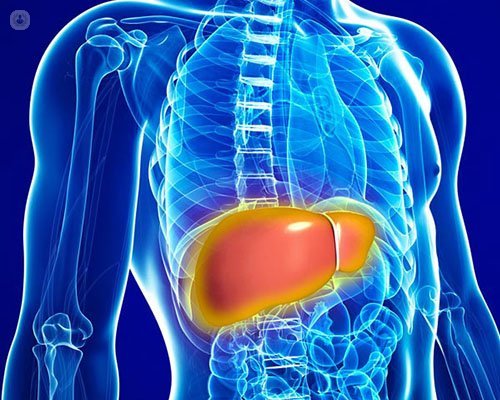How to prevent liver disease
Written by:The liver is one of the hardest-working organs in the body, as it performs hundreds of functions. It processes anything that a patient eats or drinks, and either repackages it for the body to use or eliminates it. There are more than 100 different types of liver disease, which do not often cause any obvious signs or symptoms until it is fairly advanced.

Our leading London expert gastroenterologist Dr Aathavan Loganayagam explains how a healthy lifestyle can lower the risk in developing liver disease such as hepatitis A, B, C or cirrhosis (scarring of the liver)…
The liver stores most of our nutrients and is the major organ for nutrient processing. Any bad food or alcohol consumed will be associated with potential for damage, so focusing on a healthy diet is key. Being overweight is linked to non-alcoholic fatty liver. Avoid having multiple sexual partners, IV drug abuse, and body piercing or tattoos with unsterilized needles to decrease your risk of liver damage from hepatitis C and hepatitis B.
Symptoms of liver disease
- Tiredness
- Nausea and vomiting
- Decreased appetite
- Itching
- Dark urine
- Pale stools
- Jaundice – which causes yellowing the whites of your eyes
Various types of liver disease such as hepatitis A, B and C, as well as cirrhosis, are sometimes diagnosed 20 to 30 years later. The liver is said to be ‘silent.’
How to test for liver disease
Patients will start with a blood test called the liver function test. It does not actually test how well the liver is functioning, but rather, if the liver is leaking enzymes and whether there was a reduction in bile secretion from the liver. This would indicate that something is wrong.
"Normal" test results for liver disease
Having a normal function test is no guarantee that the liver is healthy, especially if the patient has a history that raises concerns about their liver. Depending on the history, symptoms and signs, the doctor may decide to do more tests, which might include an ultrasound, CT or MRI scan.
The best diet for a healthy liver
Nutrition guidelines for liver health are the same as limiting risk factors associated with cardiovascular disease. Foods to be kept to a minimum are:
- Fatty meats like pork and beef
- Full-fat dairy products
- Cakes and pastries
- Chocolate and sweets
- Sodas
To help preserve liver function, opt for a healthy, balanced diet such as:
- Plenty of fruit
- Vegetables
- Proteins – white meat, fish and eggs.
Although the body needs fat, it is important to avoid artificial trans-fats and opt for monounsaturated fats like those from avocados and nuts, and include polyunsaturated fat sources like fatty fish, flaxseeds and pumpkin seeds. Limit the total fat intake to 20 percent of the diet.
Alcohol and liver disease
When it comes to alcohol and the liver it is the quantity of alcohol that matters and not the type of drink. Drinking a glass of water to “compensate” for an alcoholic drink and avoid hangovers is no better for the liver. Similarly, only drinking “good quality” alcoholic drinks may make you feel better but it does not make the alcohol they contain any less damaging.
Learn more about how alcohol affects the liver
Can hepatitis and cirrhosis be cured?
Until recently, it was thought that a liver with cirrhosis could not be healed. This is usually the case because most diseases that cause scarring of the liver are long-term and difficult to ‘cure’. However, recent research has shown that it may be possible to heal scarring and even cirrhosis where the liver disease causing this damage is able to be successfully treated.
In 95 per cent of cases, hepatitis C can now be cured thanks to new antiviral agents that kill the virus. The progression of the hepatitis B virus can be halted by two specific drugs, but no cure is currently available. Other drugs are in the process of being tested.


